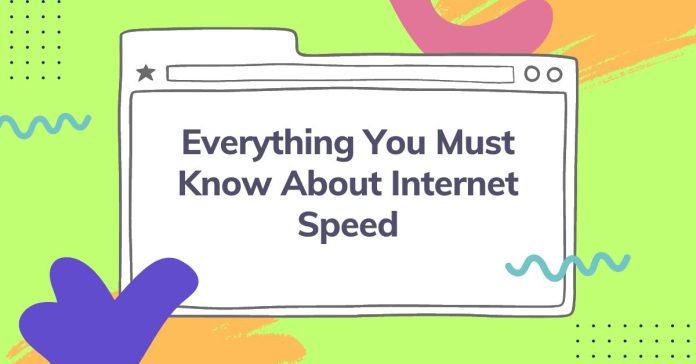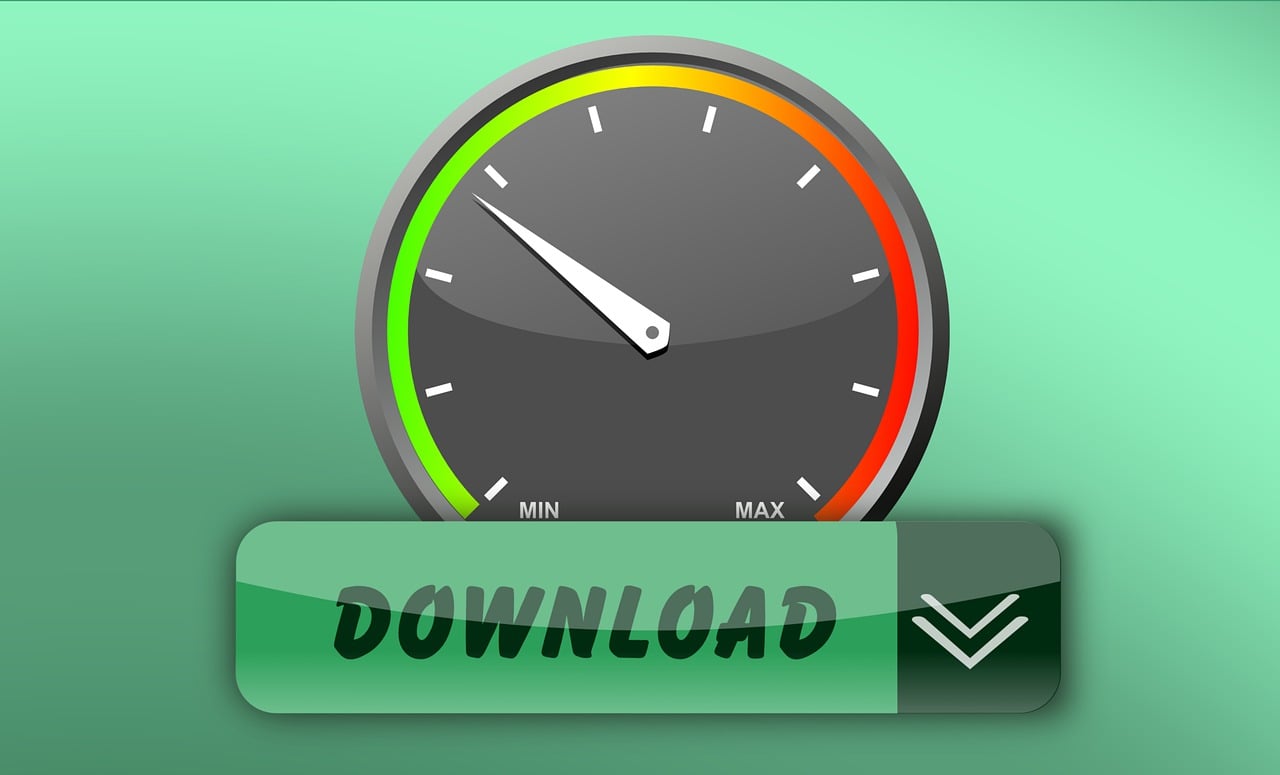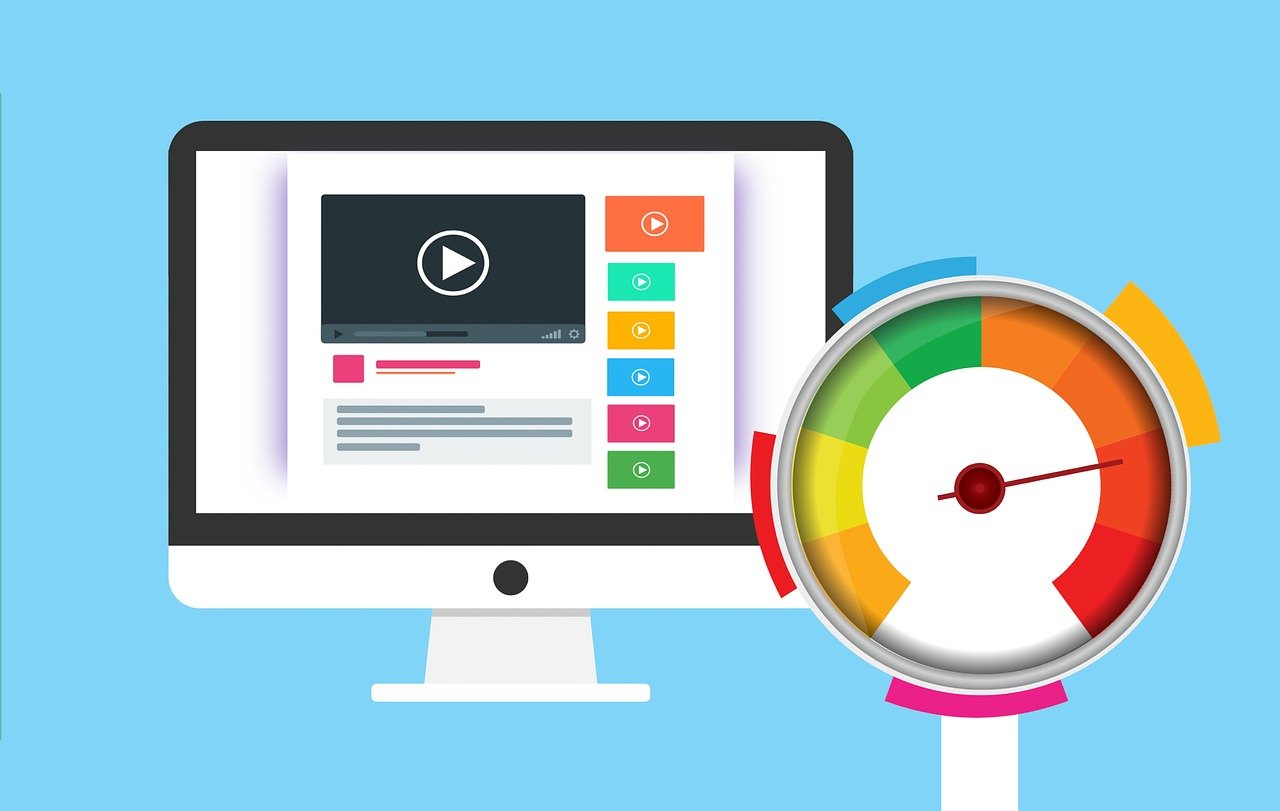Learn everything you must know about Internet speed in this post.
Do you have a sloppy internet connection at home or work? Ever wondered what exactly is the reason behind it? Did the internet speed click your mind by chance? If the answer to all these questions is yes, this post is for you. We have gathered all the information in the world about internet speed.
We often hear that if your internet speed is fast enough, you can perform various online activities and connect many devices simultaneously. However, before you determine what internet speed you need from your provider, you must understand how you and your family use the internet at home.
Slow internet speeds can make it difficult to stream video, play video games, or upload files on the web. You might be paying too much for the internet if it is too fast. Upload and download speeds are often advertised by internet service providers.
However, it is essential to note that these numbers are not always accurate. Researching their actual internet speed is always a good idea.
Table of Contents
How to Measure the Download Speed?
We measure download speed by opening multiple connections to a server and downloading a large file simultaneously on each one.
Thus, the determined data quantity can be measured by maxing out the bandwidth on the internet connection. The internet speed available for downloading data is calculated by recording the data throughput against measurement time.
Pro Tip: Xfinity is a good option if you are looking for an ISP with great download and upload speeds. Not to mention, their plans are affordable as well.
Moreover, they offer services in Spanish and English. So, if you are Hispanic, you can call número de teléfono de Xfinity anytime to find more details.
How to Measure the Upload Speed?
This one is easy. By reversing the download analysis sequence, upload speed is measured. The test server is connected to multiple times again.
An overwhelming amount of random data is downloaded instead of a file and pushed through all connections to the server.
Multiple streams ensure that the maximum throughput is measured by moving data to the server over the network. Once again, calculating the internet.
Why is Your Connection Slow?
Now that we know how to test your internet speed, let us try to find out the reasons behind a slow connection. Jumping to the first cause immediately.
The Router Location
This plays a significant role in signal strength. You should keep it away from potential signal-blocking devices like microwaves, radios, and thick/dense walls.
You should also get it off the floor to prevent interference with internet signals. Your router should be placed on a clear, elevated surface in the middle of your home.
The Rush Hour Concept
Most people use their home internet during “rush hour” between 7 and 11 p.m. If you use cable internet, this can slow your internet speed.
Unless your plan is faster or you reduce the number of devices using the internet now, there isn’t much of a solution to this problem.
Connection type
Choosing an internet plan is only one part of the decision-making process. You also have to consider which connection type best suits you. Fibre optics, DSL, cable, 5G, and fixed wireless are the most common options.
There are, however, some differences between these options. The cable option is a good alternative to fibre optics in your area if fibre optics are unavailable. In terms of speed and reliability, fibre optic connections are the best.
Since fibre optic providers are typically only deployed in densely populated areas, rural residents are more likely to have access to DSL, fixed wireless, or satellite service.
Throttling
When you surpass your plan’s data limit, internet service providers often throttle your internet speed, and some even throttle your speed on particular websites or activities.
If the latter is the case, a plan change and faster speeds might be needed. You can do the former by testing your connection outside the busy period and then test it again with a VPN.
Throttling is unlikely to be the case if the speeds are similar. Throttling could be evident if they are different.
Malware
Infection Malware affects the hardware, software, or applications of your computer. Malware, like internet malware, can infect web browsers and other computer applications.
Multiple browsers can be opened in the background when this kind of malware is installed, which can slow down internet speeds.
Conclusion
In conclusion, understanding internet speed is crucial for optimizing your online experience. Factors like router placement, connection type, and potential throttling by your provider can impact speed.
Being proactive about malware is also vital. By tailoring your setup to your needs, you can ensure optimal performance. We hope this guide helps you achieve fast, reliable internet browsing. Share your thoughts in the comments below!
This brings us to the end of this post. If you want to test your internet speed, remember that what you intend to do with the connection will determine how fast it is. We hope this article helps you understand internet speed and how to test it.
INTERESTING POSTS
About the Author:
John Raymond is a cybersecurity content writer, with over 5 years of experience in the technology industry. He is passionate about staying up-to-date with the latest trends and developments in the field of cybersecurity, and is an avid researcher and writer. He has written numerous articles on topics of cybersecurity, privacy, and digital security, and is committed to providing valuable and helpful information to the public.









